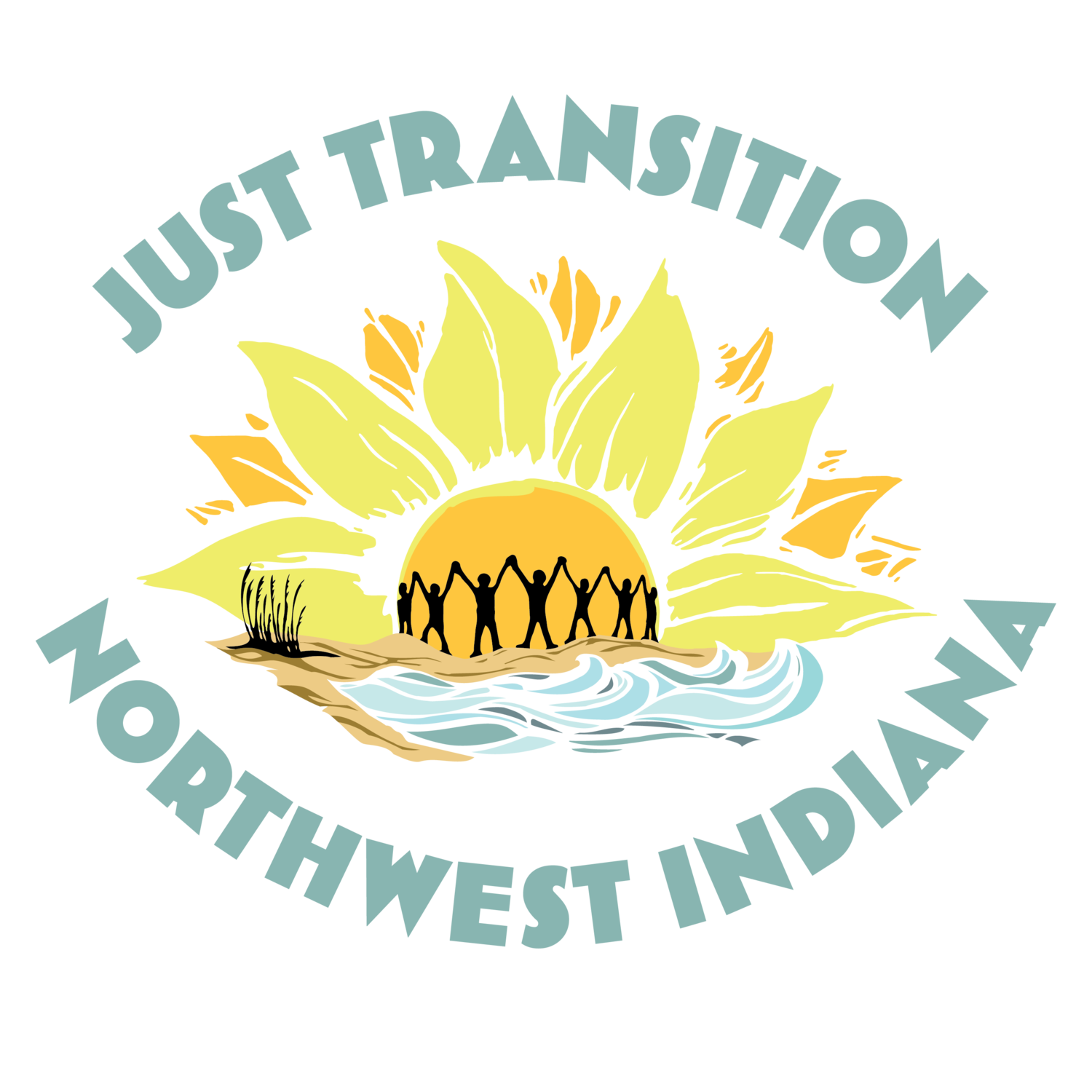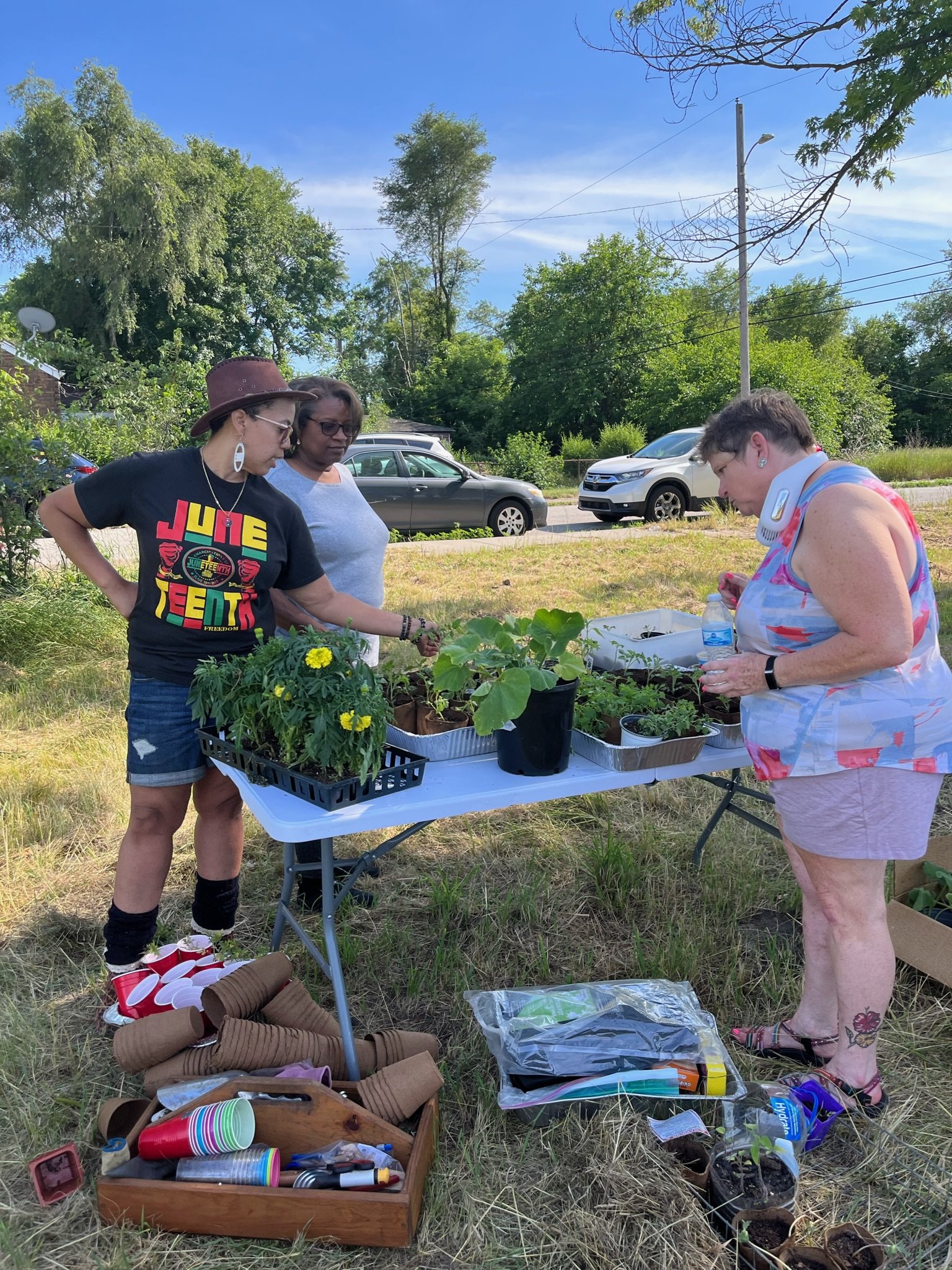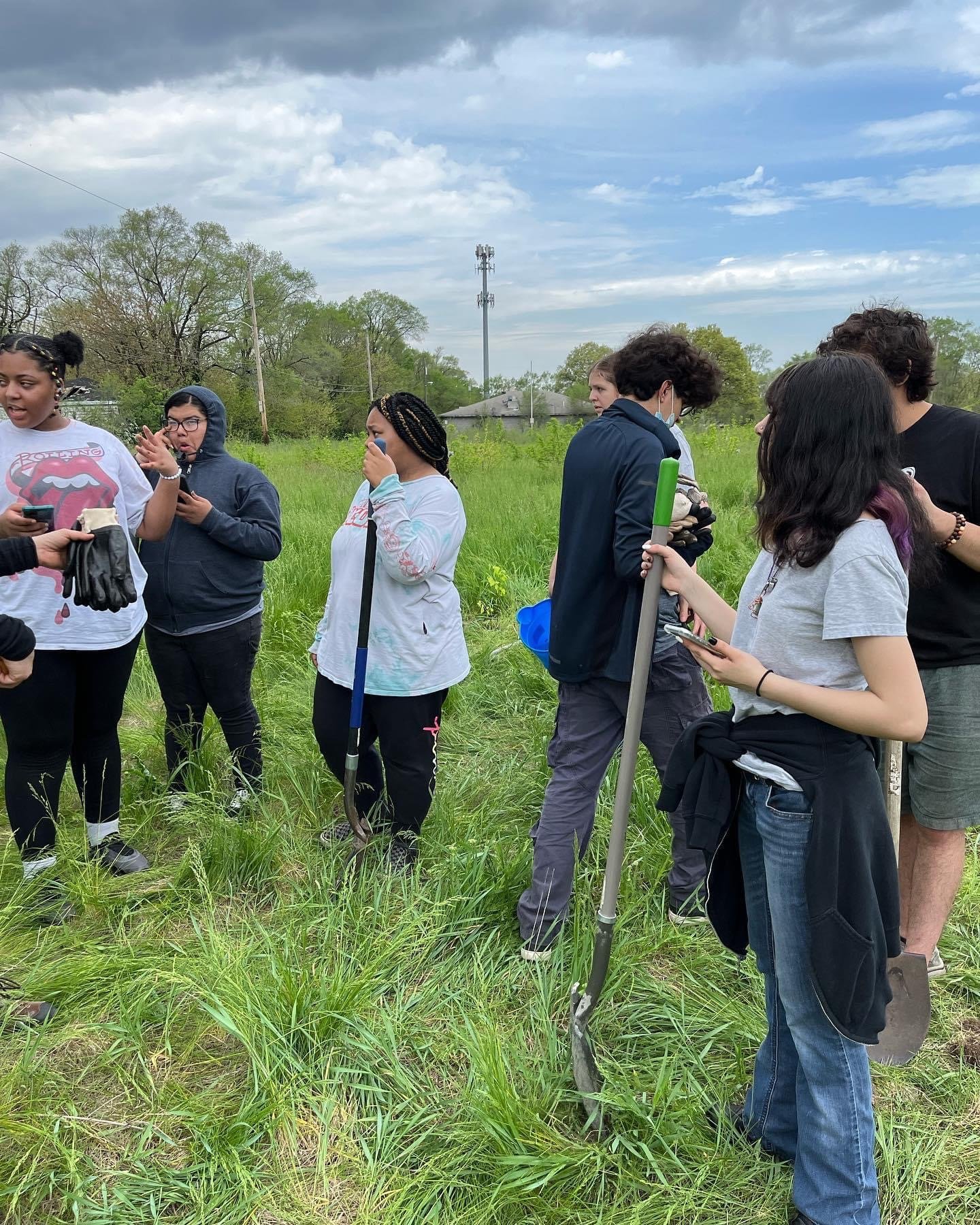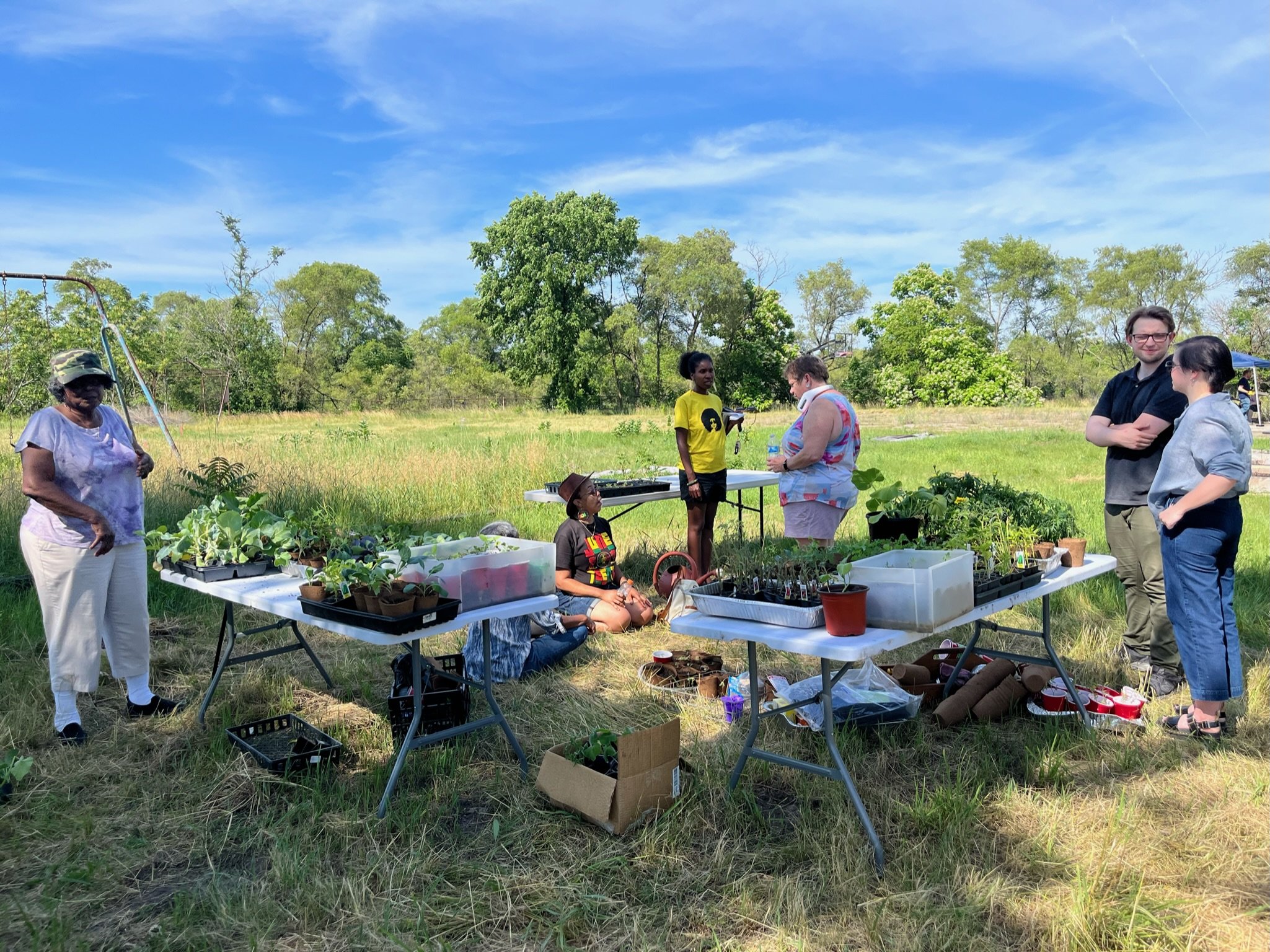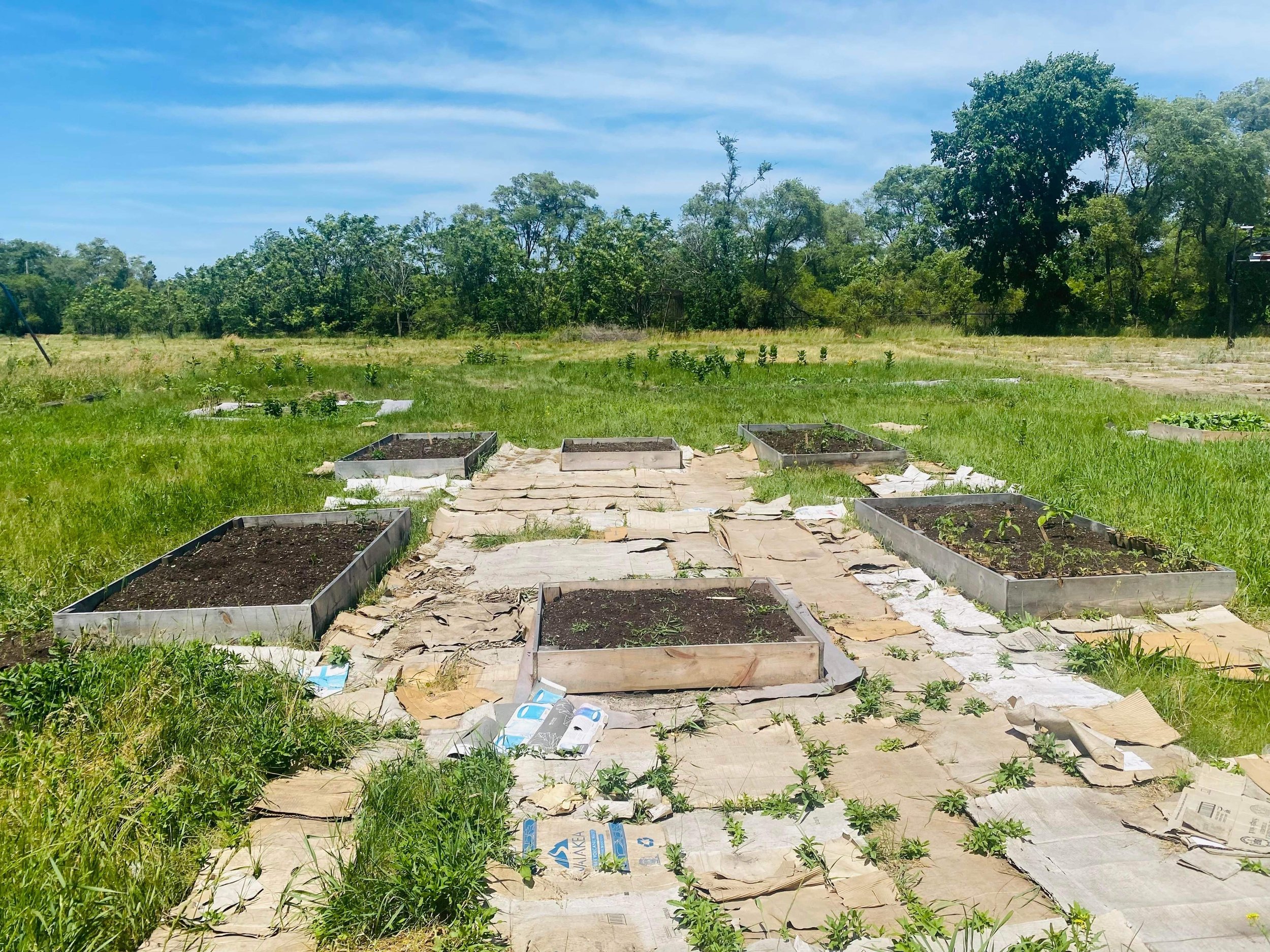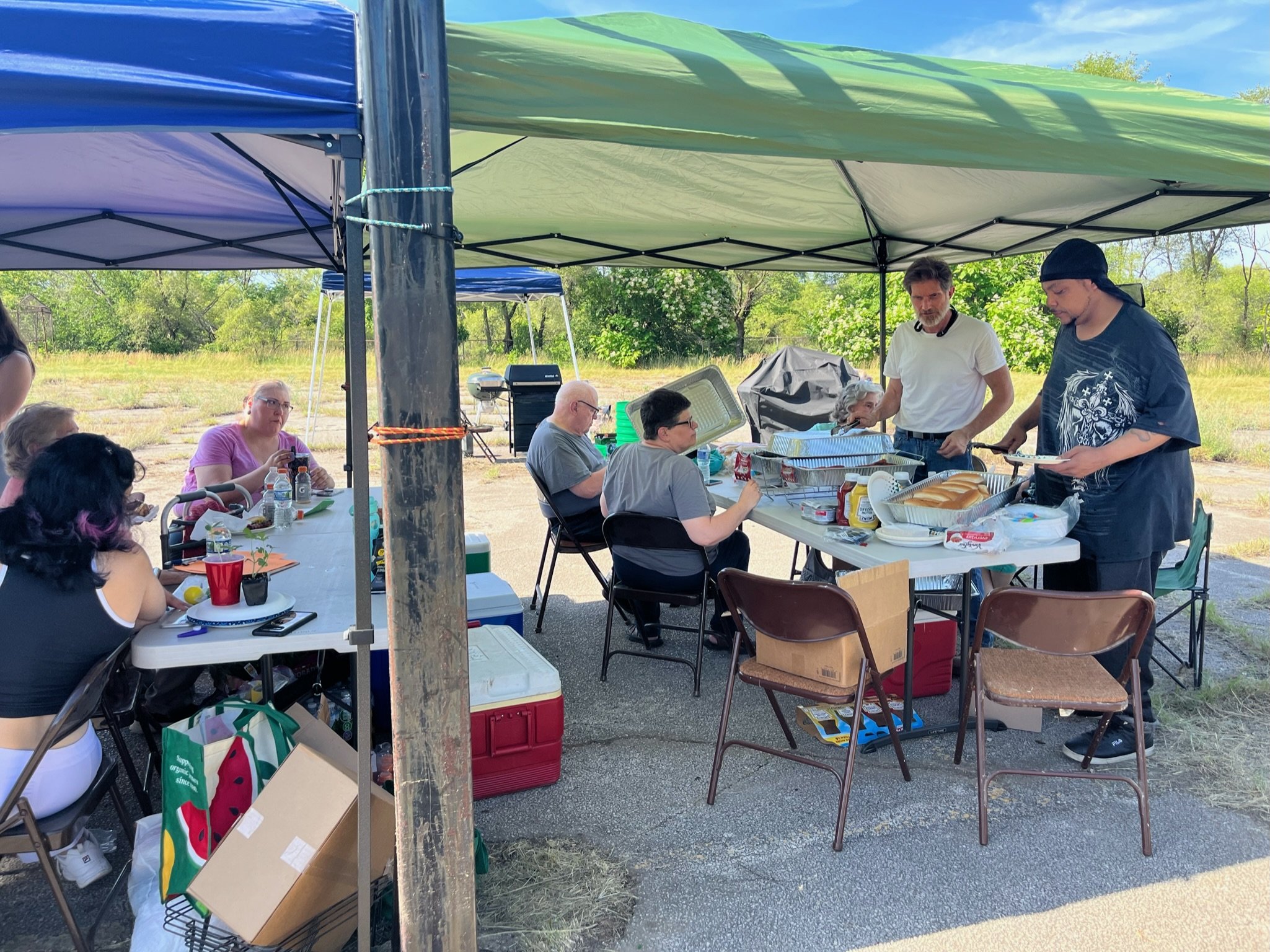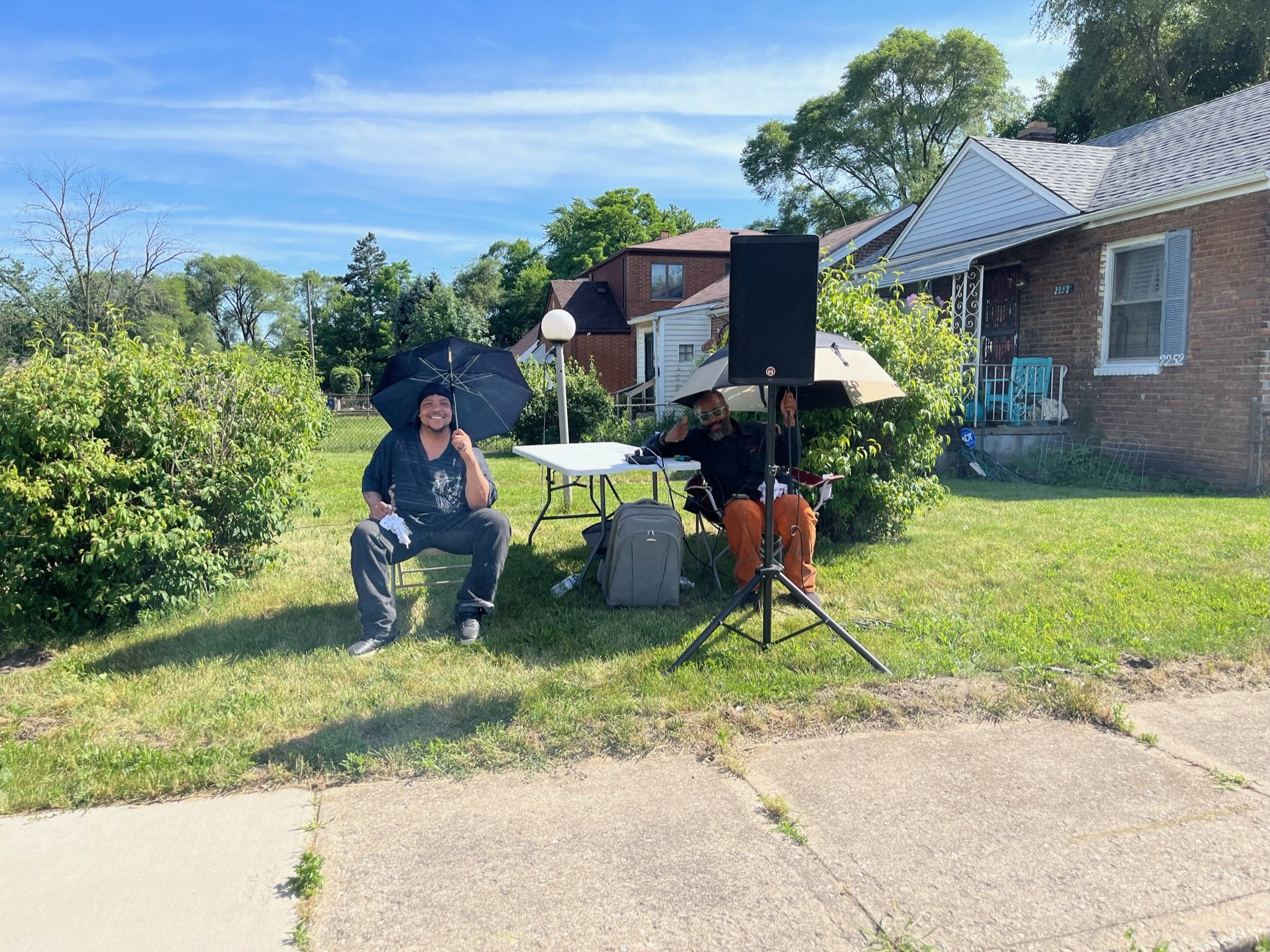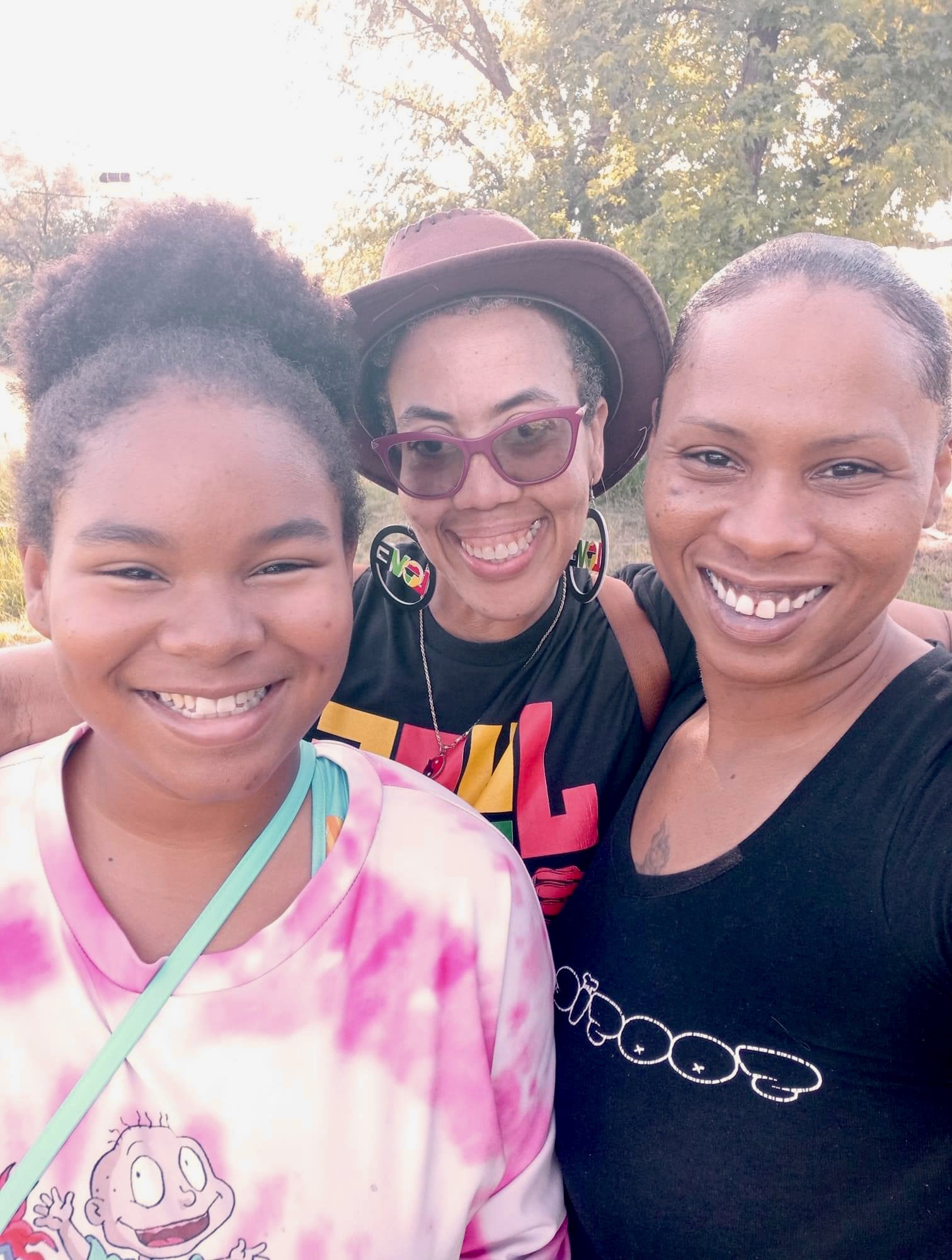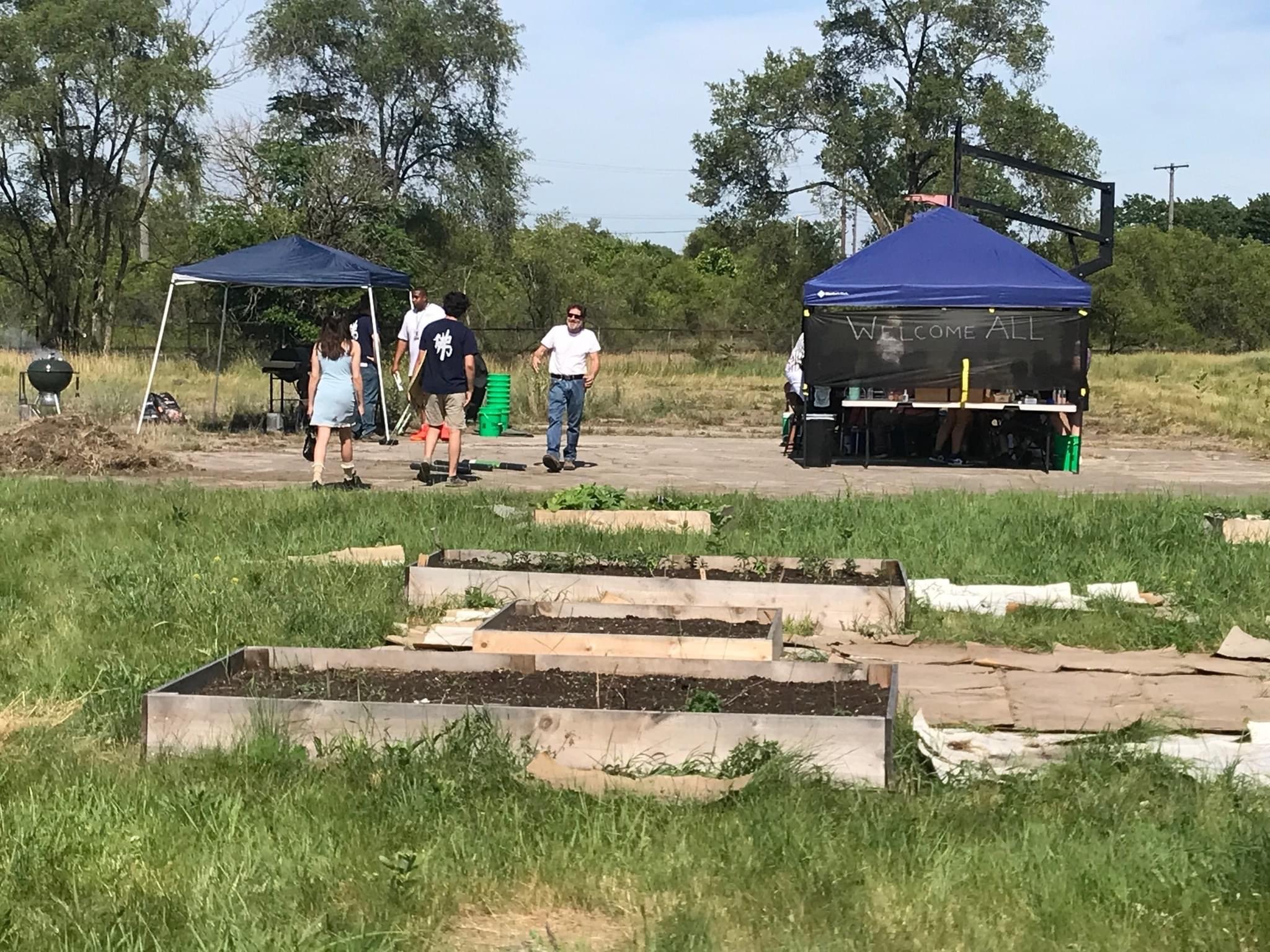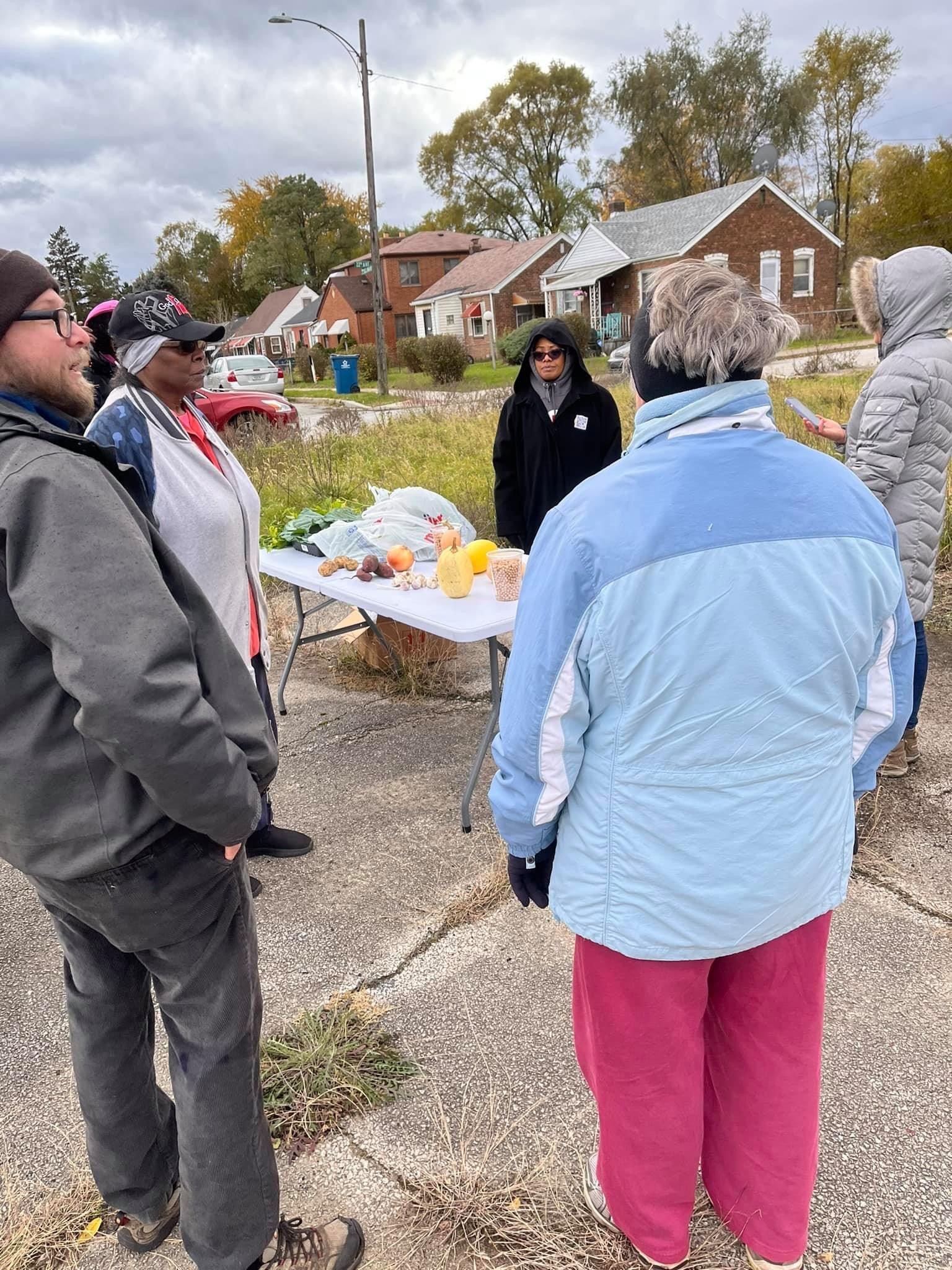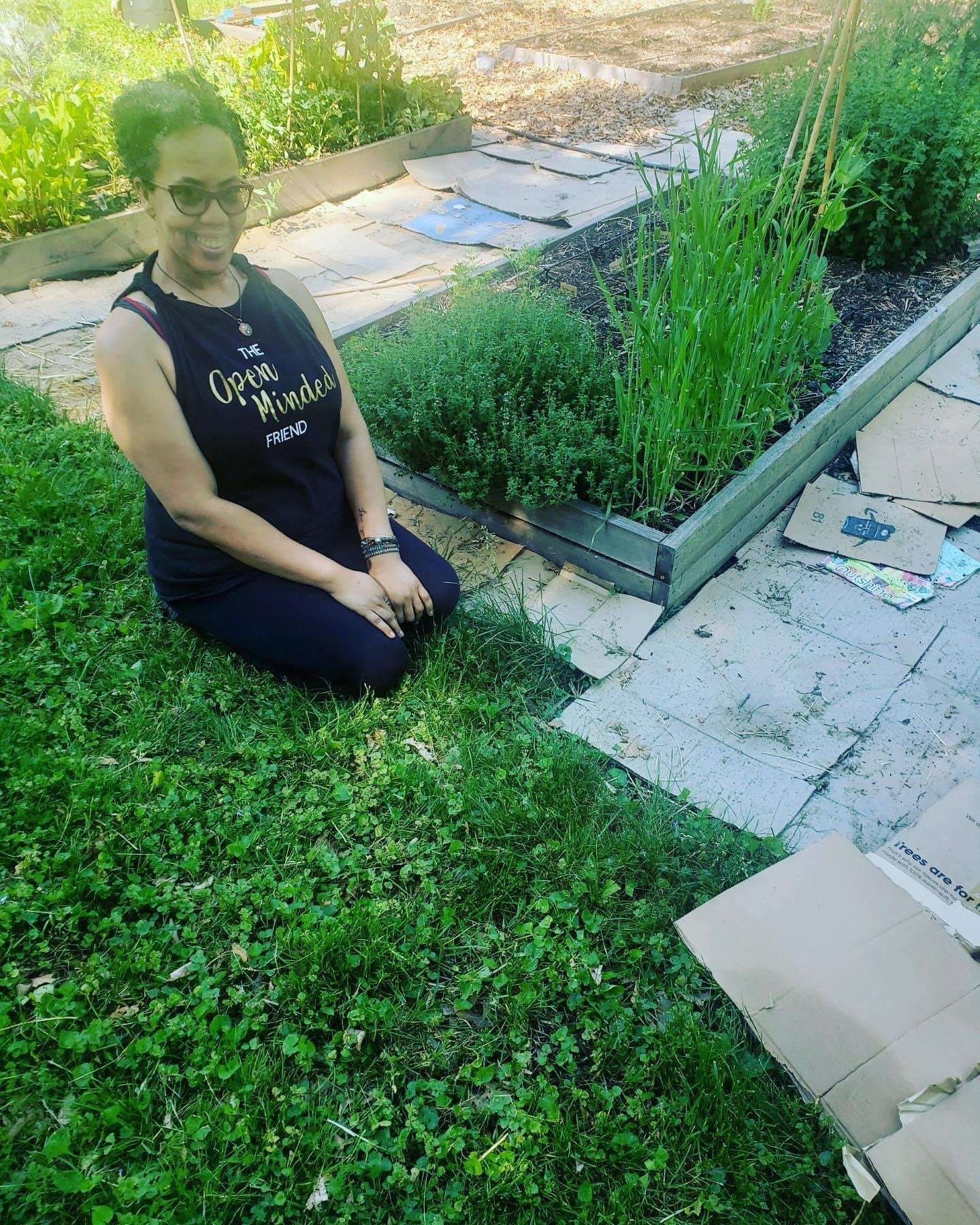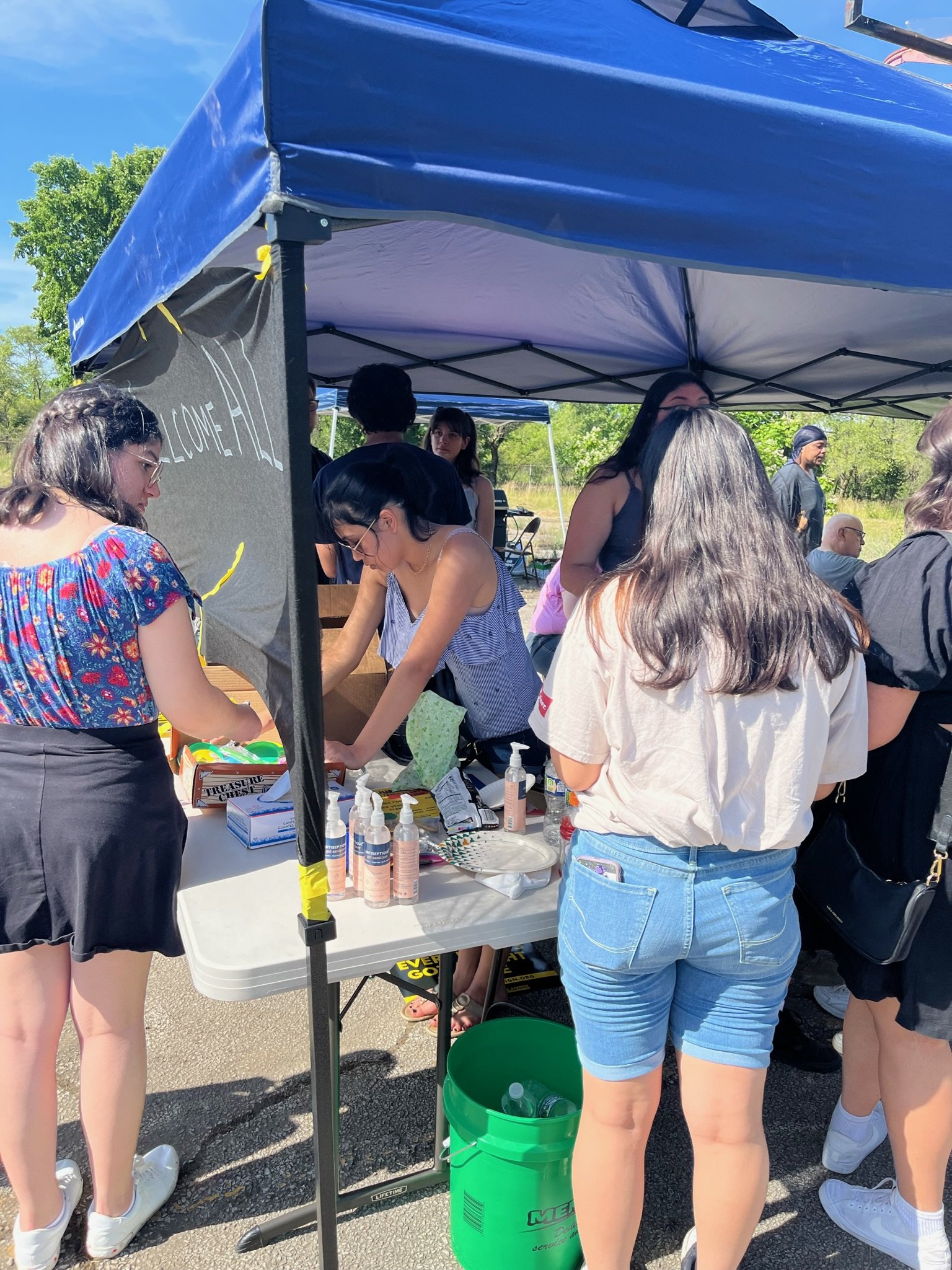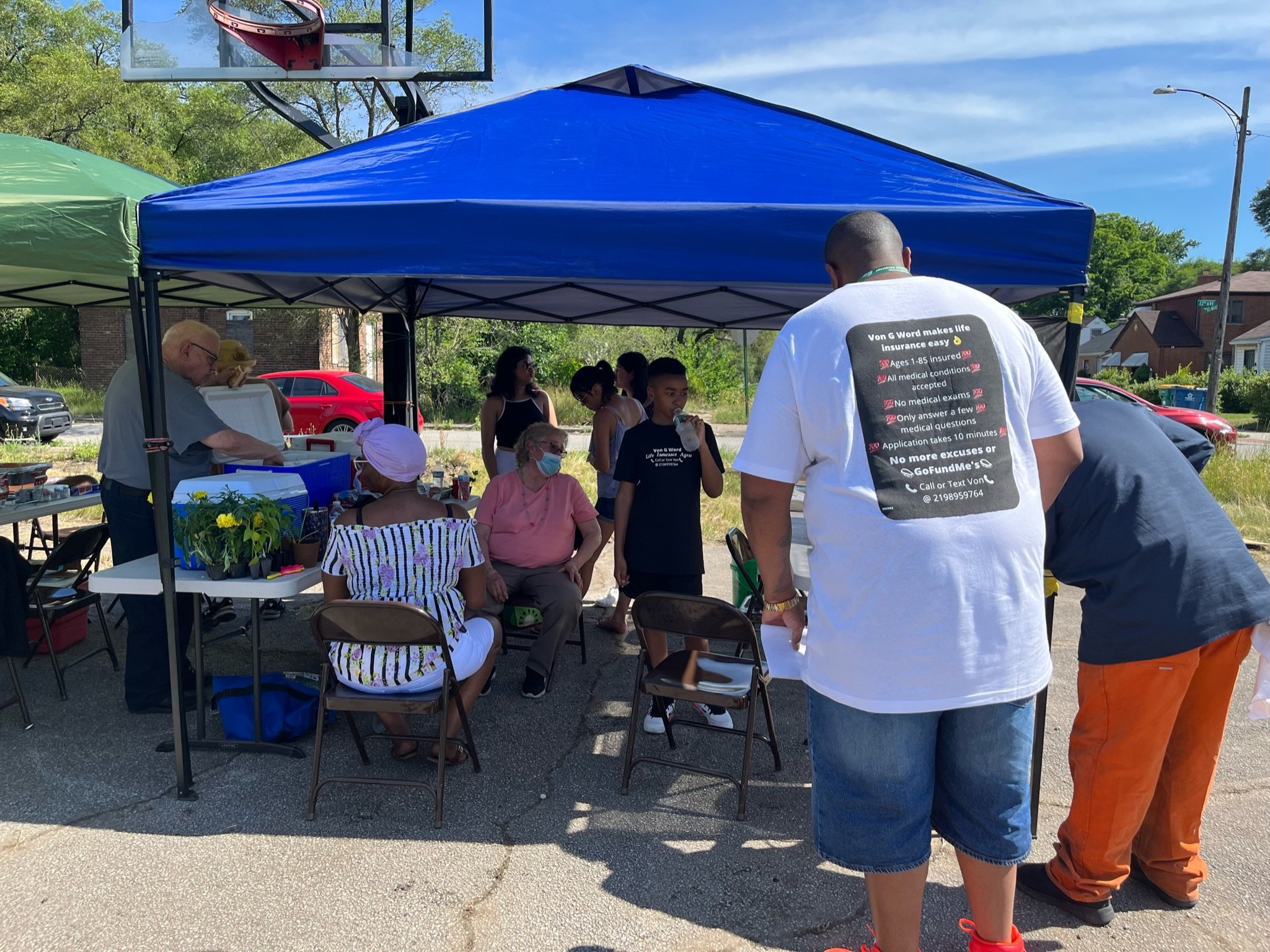Living Green Garden: An Interview with Libré Booker
About Libré Booker:
Libré Booker is an entrepreneur and the founder of Living Green Garden. She teaches people how to cultivate food, cook wonderful whole-food plant-based meals, and live in harmony with themselves and the planet. As a guerrilla gardener, she started a community garden in her hometown, Gary, IN. Living Green Garden focuses on holistic plant-based healing through gardening and educating the community on how to farm and be self-sufficient; selling whole plant-based foods and teaching people how to cook healthy and delicious whole plant foods; and through energy healing (she is a Reiki Master, she uses energy practice with herbs for healing).
Preface by Libré:
Food sovereignty is important because growing and being more in control of our food puts us in the mindset of being of service instead of solely a consumer. When you grow and raise much of your own food, you are giving to the land and receiving a harvest, and you join the natural dance of life, which is giving and receiving. We become mindful of what we are growing and consuming, consume less, and things balance out, especially when external resources such as gas, water, land, and fertilizers are reduced. When we do not participate in producing any of our own foods, we become consumers only, and overconsumption is a key environmental issue.
As we become more food sovereign, giving during this harvest season will connect us through local food and gratitude. As we grow and share our food with each other, we gain security, connection, and a cleaner Earth.
Malaska
Thank you so much for taking the time to meet with me today. We can just start with you telling me a little bit about yourself and your background.
Libré
I’m Libré Booker. I’m the founder of Living Green Garden, and before that, I was a librarian. I decided to live my life purposely by living in my purpose. Although I love librarianship, my passion has always been with the earth and helping the earth. I decided to transfer from librarianship to become an entrepreneur, which is my company, Living Green Garden.
Living Green Garden's tagline is holistic plant-based healing, which means, in my mind, when humans align with the will of the plant, everyone heals. We will heal. the planet will heal. Everything will come into balance. Holistic plant-based healing with Living Green Garden focuses on three different things:
It focuses on gardening. It teaches people how to grow their own food and be sustainable and self-sufficient. It’s kind of like a prepper, like doomsday mentality. If the system goes, I would like to know that we will be okay. You know we rely on food being transported from all over the world. That’s the garden part. Getting people out in nature through growing their own food. Eating more of what they grow themselves will help in so many ways. I believe that the more that people eat plants and connect more with plants and vegetables, people will heal physically, emotionally, and spiritually.
The second part of holistic plant-based healing is whole plant-based foods. I want people to grow their own food but also know how to prepare it so that it's delicious. It’s one thing to grow food, but now you have this cabbage, you have this squash; what am I going to do with it? Teaching people, and showing people how to prepare plant-based food where it’s delicious is important. I feel like when it comes to plant-based foods, people don’t expect it to be delicious. It is like, “This is good for plant-based.” I don’t believe in that. I believe that food should be delicious, period!
I have a cookbook that is published called, “The Soul-Full Whole Food Plant-Based Cookbook”. I particularly focus on a whole food plant-based (wfpb) diet. People who have been close to death with clogged arteries and heart disease got rid of it by eating a whole food plant-based diet. I myself had extreme diabetes, high blood pressure, and high cholesterol. I was on a ton of medication and eating a whole-food plant-based diet, I have been able to get off all my medication. This has been the only way of eating where my body naturally balances. I naturally lose weight, and my body gets into well-being.
Malaska
Wow! That’s amazing. Honestly, that is incredible. Being able to get off all those medications after just doing one simple thing, changing the habit of how you eat.
Libré
Exactly! Yeah!
I believe that all of us should listen to our bodies. Our bodies are divine intelligence and know what we need. Sometimes, our body will be like, “Hey! Get outside and get some fresh air.” Just listening to our body and going outside for a walk does wonders. There is this documentary called “Forks over Knives.” It’s amazing, and it's one of my favorite documentaries. That is where I learned about a whole food plant-based diet. This documentary showed people who are really sick. They had heart disease close to death.
I have watched this documentary for years. When I first watched it, I was probably only a diabetic, but it’s kind of like a chain reaction once something goes, and if that is not corrected, something else comes, then something else comes, then something else. That's what happens to me. I was a diabetic for a while. At first, I didn’t relate to the sick people in the documentary at all because I was only a diabetic, even though it was severe. I was only a diabetic. Then I got high blood pressure. I thought that was a fluke, but it wasn’t going away. Then, once the high cholesterol came in, I realized that I had the top three factors of heart disease. It scared the hell out of me. Watching that documentary after I had gotten all three, I was looking at this, and I’m like, “Wow, I’m exactly these people now.” Actually kind of worse now; some of them didn’t have all three. If I keep on this road, I’m pretty much saying I’m on the path to a vast decline in health and death. I’m not ready to die! I’m planning on being here for a very long time. The documentary and the diet changed my life.
The last focus of Living Green Garden is energy healing. I am a Reiki Master and Reiki practitioner. Healing with energy practices and herbs. Everything is energy. Everything has metaphysical properties. What herbs are out there that we can heal whether we are ingesting those herbs, or I even believe that because everything has a frequency, even having catnip close to you, it does something to your energetic frequency. Everything is connected. When we balance our energy, we balance our bodies, our minds get clear, we step into well-being, and live happy, holistic lives. Those are the three components of Living Green Garden.
Malaska
That is beautiful. I actually think I saw a similar documentary, and I recall that folk were coming together with different types of disease, and I’m pretty sure one had cancer. They were there for about five months or more, and you see how folks were able to get cured or improve their symptoms by using these plants as medicine.
Libré
I would love to watch it!
So, my mom died from cancer. When I started to cook whole food plant-based at first, she was resistant to it, but she was eating it. When she was eating the whole-food plant-based diet her cancer was improving; the doctors couldn’t even explain it no one could explain it. I was with her at all her appointments. I knew what it was. She was on chemo, but her numbers were improving. It was amazing! Then, she started to eat traditional processed foods again. Her numbers started to change. Once she started eating processed foods again, and as her stress levels increased from watching the news and getting upset about things that were happening in the world, she started to decline, and then she passed. But anytime I could get her not to be stressed out and eat the whole food plants, her numbers always improved. That's why I’m like, I have seen this work. I know! I know for sure that she would have been here today if she had kept up with the whole food plant-based diet and reduced stress. Her well-being was taken care of, and the body naturally heals when we put the conditions in order. That is with everything.
Malaska
Yeah! That’s wild how processed food is intertwined with our lifestyle since fast food is so easy to get. But let me go ahead and ask you another question.
How did you get involved with Just Transition Northwest Indiana, and what excites you about our work?
Libré
It was the environmental activist networking event where I connected with you all, and it was at that event that I learned what was happening locally in my backyard. I wasn’t aware as much of what was happening in our own backyard environmentally. When Ashley spoke, it scared the hell out of me. I was like, OMG! I was like, okay, I need to do something now. I don’t know what I can do, but something must happen.
Just Transition Northwest Indiana has put an awareness to me on what is happening locally and how it is affecting us. It’s encouraging to know that Just Transition Northwest Indiana informs people about what’s going on and takes practical steps to do something. I’m a very action-oriented person. I’m like, okay, let’s talk about it, let me know what's going on, and now let’s get to work, and that’s Just Transition Northwest Indiana. That’s what really intrigues me.
Malaska
Thank you for sharing.
At JTNWI’s Fall Social & Fundraiser, I had the pleasure of learning about your passion for urban agriculture and community “guerilla” gardening. Could you tell me more about this: your experiences and challenges?
Libré
Yeah! I am a guerilla gardener. So that means I find land that doesn’t belong to me, and I plant food on it. So, I’m from Gary, so my heart is with Gary first then I want to branch out throughout the world. I'm working in Gary looking for some land. I had particular criteria for the area that I wanted to start a community garden where anybody who wants food can go and get food. It had to be in a food desert. So, I was looking for a place where there wasn’t much access to a grocery store, or if there was a store, it was one of those corner stores where they sell chips and things, but you really can’t find fresh foods. I found that off 22nd and Delaware in Gary. This spot has been abandoned for years. Actually, the people from the community say they feel like they have been abandoned, and you can feel it.
So, I started a bed there. I started growing vegetables there, and not only that, every year Living Green Garden does a Juneteenth Vegetable Plant Giveaway. We grow some starter vegetable plants, and I put out a call out to people to donate their extra transplants to me and give as many vegetable plants as possible away for free to whoever wants them. Not only for the people in the neighborhood but especially for them because it’s in a food desert. If anyone has questions, I’m also a master gardener through the Purdue extension program, and I give gardening advice during this event.
One of the residents told me how the plants she received at the Juneteenth Vegetable Plant Giveaway this year helped her family so much with food security. They didn’t have food but had their vegetable garden from the plants they received at Juneteenth Vegetable Plant Giveaways. That is the point! That is what it was supposed to be about: food security for everyone! She gave me the message and told me to keep going and that I’m doing a lot for the community: “Keep going, don’t stop.” I was like, okay, message received.
Malaska
That’s beautiful. That’s amazing work, and I’m glad you are also getting feedback from the community. This kind of falls onto my next question: How do you see your urban agricultural efforts impact Gary and region residents to live more sustainably? Which is what you just told me is the answer. Residents are coming back to you and telling their stories on how your garden and your work have helped them.
Libré
Yeah! So, there’s the garden that anyone can come and pick from. I’ve been getting feedback that people are saying they picked from the garden.
But really getting feedback from the people taking the plants and growing them at home and how they have been eating very well. It warms my heart. I want folks to learn to grow their own food, be self-sufficient, and be food-secured.
Malaska
That's amazing work. My next question is can you tell me about the importance of the intersections of food sovereignty and environmental justice in the region?
Libré
Yeah! That’s a good question. I’m thinking about that, probably a couple of different views. So, we have relinquished control of our food to big business. Look! I’m an entrepreneur, so I’m all for business, but there is now a disconnect between us and our food. And this local food movement really ties into environmental justice. Back in the day, if I was the one who grew potatoes and grew potatoes very well, someone else grew the cabbage, someone else grew the corn, and we all came together to exchange and give locally.
Thinking about it environmentally, that cuts down on pollution to transport these goods so that we can grow ourselves locally. Yeah! It will cut down on pollution, cut down on water waste, and help to heal parts of the land. Now, there are these monocultures where there Is only one crop that is being grown in this vast area of land that depletes the soil. So, the earth is not used to only one crop; there is a system. So, us giving up our food sovereignty is hurting the earth and depleting the soil. If we get back to growing our own food, it helps the environment in so many ways: soil, pollution, and water. I know it’s not the only answer, but I do believe that it will help the environment tremendously. It’s definitely related. It is one way to be part of environmental justice. It really is.
Malaska
No, it did! It was perfect! The more I hear about your work, I truly feel that it can have a great impact on our environment if people just start gardening and making their own food. If this was something we all did we could see changes in our community in a little to a few months.
Libré
Exactly! The more and more we do it! The earth will start to heal. Because even with growing this monoculture, the earth has a system to grow, and if we do what is unnatural to it, like plant one crop repeatedly and not even rotate, we are killing off these microorganisms that help the earth so much. We have no idea the damage that we are causing. I believe that we have gone too far. I’m all about advancement and everything, but I just believe that we have gone too far. I think we just must go back to some basics where we are not in an office all day; that part of our daily lives is getting out in nature and connecting with our food. There is even science to back it up, like when you grow your own food, the nutrients your body needs will be grown in the food that you are connecting with and growing. It is like the plants know what your body needs. It’s a beautiful dance and a beautiful relationship. We have cut off this dance because we have removed ourselves from nature and given up our food sovereignty to solely big businesses.
Malaska
I like that phrase; it is like a beautiful dance. My next question is: What is something you would like to convey to anyone reading the blog?
Libré
Don’t be afraid. Look! If something dies, it is okay. Put a seed in the ground and see what happens. Learning gardening can be intimidating for someone who hasn’t done it. But it’s okay. Gardening teaches us life. We see how things work; we see how everything works together and how things die. If you kill something, don’t take it personally. Just get started. Just do it. It is fine, and you will learn. You are doing this for yourself and your family. You have no idea the impact. It goes beyond you and your family. Your action of growing, even if you can grow your own tomatoes, helps the planet. Don’t be afraid of gardening; it is a learning experience. Growing just one plant is a small act that can save the world. Even if the tomato plant dies, it is going to be okay; just get started.
Malaska
I like that, yes! I tried planting it, and it didn’t survive.
Libré
You know what? That’s okay. You learn from it. Every year, something dies. I have been gardening for over 20 years, and something dies yearly. It's okay! It's fine!
Malaska
See, if it happens to you, it will happen to us.
Libré
Exactly! Oh, the beets! The Beets died this year. The beets were coming out beautifully, then I went back there, and they all died! So yeah, it's okay. It’s nature. This is what nature is: life and death in nature. Gardening teaches the cycle of life, and that it's okay.
Malaska
Thank you so much for what you have shared with me so far, I have one last question. What inspires you to continue doing what you do?
Libré
I have this connection to Mother Earth that I always had, even as a child. I believe that we are all part of the earth. We are all Mother Earth. I see the distress that she’s in, and the distress we are in as humans, and how that has stressed wildlife. I want to do my part to save Mother Earth and humanity. I believe this work has been put on my heart to do. I believe as humans, it starts with us. Once we heal, Mother Earth will heal and get into balance, and once everything gets into balance, there will be peace on Earth. I know we can get there. We just need to heal. That’s what helps me to continue. Peace on Earth.
Malaska
Thank you so much. That was my last question. I appreciate you meeting with me today and allowing me to ask you some questions. That is all I got. Is there anything else you would like to say before we close it up?
Libré
Just hey. There is no act too small; don't be intimidated by any small act. Don’t let fear stop you. Your small act has a ripple effect globally.
Malaska
I love that. Thank you!
Please enjoy a recipe from Libré’s cookbook: The Soul-Full Whole Food Plant-Based Cookbook found here on Amazon, and learn more at livinggreengarden.com.
